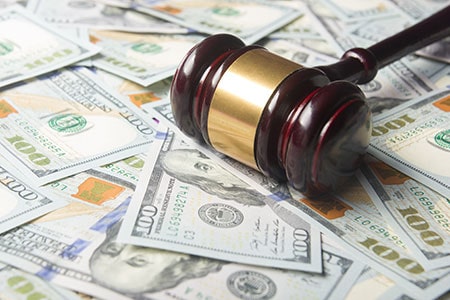
One of the most pressing concerns many individuals face is understanding their responsibility for their spouse’s debt after divorce.
Divorce can be an emotionally and financially complex process, especially when it comes to resolving debt. One of the most pressing concerns many individuals face is understanding their responsibility for their spouse’s debt after divorce. Money issues are a leading cause of divorce in the U.S., and it’s common for couples to accumulate debt together or separately during their marriage. When the relationship ends, untangling these financial obligations can be challenging.
When Did Your Spouse’s Debt Occur?
A key factor in determining whether you’re responsible for your spouse’s debt is the timeline of when the debt was incurred. In Maryland, any debt either party accumulates before marriage is considered pre-marital and typically remains the sole responsibility of the individual who incurred it. This includes student loans or personal loans that were taken out before the marriage.
However, debts accumulated during the marriage are often more complicated. For example, if both spouses used a credit card for household expenses or shared loans for a car, those debts are generally considered marital debts. Maryland courts tend to focus on when and how the debt was acquired to decide how it should be divided.
Whose Name Is on the Debt?
The next critical consideration is whose name is on the debt. If both spouses’ names are listed on a debt, such as a joint credit card or co-signed loan, both parties may be liable. Even if you agree that one spouse will make payments after the divorce, creditors can still come after either party if the payments stop. This could leave you responsible for debt you didn’t expect to pay.
On the other hand, if the debt is in only one spouse’s name, Maryland law won’t assign responsibility to the other spouse for individual debts. For example, if your spouse had a credit card solely in their name, you may not be liable for it after the divorce. However, any debts tied to marital property could influence the division of assets, as the court may consider the debt when deciding who retains the property.
Debt Connected to Marital Property
Marital property, such as homes, cars, and other major purchases, often comes with significant debt. If a loan or debt is directly tied to an asset, such as a car loan or a mortgage, the spouse who keeps the property typically assumes responsibility for the related debt. For instance, if you retain the family home after divorce, you’ll likely take on the mortgage payments as well.
This logic extends to smaller debts tied to tangible assets, like appliances or furniture bought on credit. If you are left with these items, you’ll likely be responsible for paying off the associated debt.
What Happens if Your Spouse Files for Bankruptcy?
In some cases, a spouse may face bankruptcy after the divorce. If you and your ex-spouse share joint debt, bankruptcy could leave you responsible for the entire balance—even if your divorce agreement states otherwise. Creditors are not bound by divorce agreements and may pursue whoever remains liable for the debt.
If your spouse files for bankruptcy, it’s critical to consult both a divorce attorney and a bankruptcy attorney to ensure your financial protection.
The Right Lawyer Can Make All the Difference
Hiring a lawyer should be the first thing you do when encountering any legal matter, not a last resort. Whether you’re thinking about a separation or divorce or have been charged with a crime, been injured in an accident, or your civil rights have been violated, you need to first know your rights. Contact Mike Mastracci today at 614 Edmondson Ave Catonsville, MD 21228 (with satellite offices in Ocean City, Snow Hill, and Salisbury, Maryland), 410-869-3400, and check us out on Facebook.
